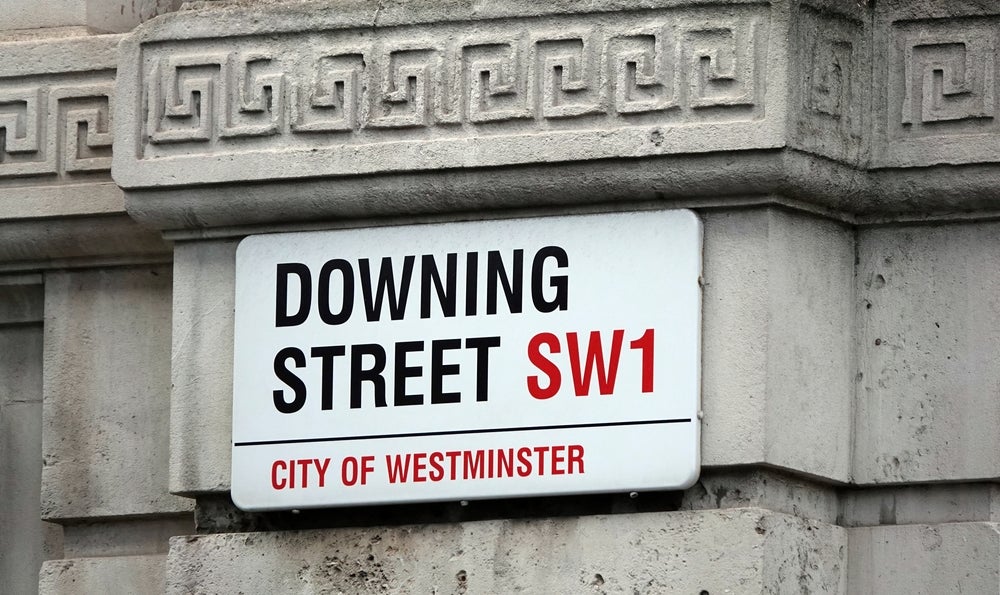The Budget causes
disagreement over whether or not the measures will
enable economic growth.
GE
Capital
John Jenkins,
CEO
 The
The
measures announced in the Budget are not about to solve the central
issue facing UK SMEs, which is the lack of funding available to
support business growth. It’s clear that many UK businesses are
suffering from a strained relationship with their commercial
lenders and are lacking the range of alternative forms of finance
that are more widely available to their competitors in countries
such as France and Germany.
Greater disclosure of a
company’s financials is critical to enabling a wider range of
potential investors to do credit analysis, and helps to speed up
loan approvals processes. The government has a huge opportunity to
encourage competition in the UK market by allowing this information
to be made more freely available.
How well do you really know your competitors?
Access the most comprehensive Company Profiles on the market, powered by GlobalData. Save hours of research. Gain competitive edge.

Thank you!
Your download email will arrive shortly
Not ready to buy yet? Download a free sample
We are confident about the unique quality of our Company Profiles. However, we want you to make the most beneficial decision for your business, so we offer a free sample that you can download by submitting the below form
By GlobalDataIndependent lenders don’t
have access to the same real-time information that large banks have
developed over the years through their internal credit scoring
systems, making the decision to lend or not to lend to a particular
customer more difficult.
Enabling alternative lenders
to provide more diverse sources of funding will give businesses
deeper pools of liquidity and more execution options, which, in
turn, increases sales, enables companies to hire more people and
reduces the potential impact of future financial shocks.
GE Fleet
Services
Gary Killeen, UK
commercial director
 The
The
reduction in fuel duty is welcomed and not to be dismissed, but is
likely to be quickly swallowed up in future fuel price rises. It is
interesting to note that the new stabiliser is being proposed at
$75 (€52) per oil barrel limited, but with prices currently above
$115 (at the time of writing) this seems unlikely to ever be
triggered, certainly while unrest continues in the Middle East, and
worldwide demand continues to rise.
The increase in tax payable
on free fuel for company cars has risen from £18,000 (€20,400) to
£18,800 and this rise is well below the increase in petrol and
diesel prices seen in the last few months in percentage terms,
meaning that it will effectively represent a net reduction in most
free fuel bills. Governments have been discouraging free fuel
provision for years, so is this a change in policy?
Finance and Leasing
Association
Julian Rose, head of
asset finance
 The change to
The change to
treatment of short-life assets seems useful and confirms the
government’s intention, following our lobbying before the general
election, to maintain capital allowances at rates reasonably
equivalent to economic depreciation.
We’ll be putting the case to
the government for enhanced capital allowances in enterprise zones
to be available via leasing.
The accelerated plans for the
Green Investment Bank – which is expected to encompass the Carbon
Trust – are encouraging, particularly given the Carbon Trust’s
announcement earlier this month that its small business loan scheme
will be run by FLA member Siemens Financial Services.
The draft Finance Bill
changes to deal with the new lease accounting rules, which were
developed with our support, were confirmed without any revision.
This is just the start of a longer and vitally important process to
adapt the tax system to cope with the accounting
changes.
British Bankers’
Association
Angela Knight, chief
executive
While corporation tax is paid
on profits, the bank levy represents an additional fixed cost for
larger banks operating in the UK. It also controversially can
include the business that banks are doing outside the
UK.
Without a satisfactory double
taxation arrangement in place, this is putting banks operating in
the UK at a long-term disadvantage – both internationally, as they
compete against banks not paying such a levy, and domestically, as
they compete with other sectors of the financial services industry.
This change is not as straightforward as it first appears. Banks
like other businesses want a predictable tax regime so they can
plan their business accordingly.
Confederation of
British Industry
John Cridland,
director-general
This Budget will help
businesses grow and create jobs. The Chancellor has made clear the
UK is open for business.
The extra 1p cut in
corporation tax will help firms to increase investment.
Reductions in regulations on
businesses and the promise of a faster planning system will provide
relief to companies trying to take on staff and invest.
Support for manufacturers
through the Climate Change Agreements will help them to manage
energy costs, which is particularly important given that the
government is pushing ahead with a carbon price floor.
Widening the scope of the
Enterprise Investment Scheme will bridge the funding gap for small
and medium-size businesses, and could unleash a new wave of finance
for the most entrepreneurial firms.
Neil Bentley, deputy
director-general
The Chancellor announced a
number of measures to help boost the UK’s construction pipeline and
speed up the planning process.
The CBI welcomes the
government’s two-year programme for infrastructure and
construction. A longer-term pipeline will also boost confidence
over future revenues, allow greater innovation and enable the
industry to reduce cost. We welcome the government’s action on a
presumption in favour of sustainable development, as this would
lead to a pro-growth planning system.
Forum of Private
Business
Phil Orford,
CEO
It was an important Budget
heralded as being pro-enterprise, focused on easing the dual
burdens of tax and red tape – two of the biggest barriers to
business growth and job creation facing small businesses. In that
sense, we weren’t disappointed and this was certainly more than
just a nod in the direction of UK SMEs.
However, while there have
been some definite steps in the right direction, the government
could have gone further in reducing taxes and making the tax
regulation systems more proportional to all small businesses so
that it incentivises entrepreneurship rather than acting as a
barrier to it.






